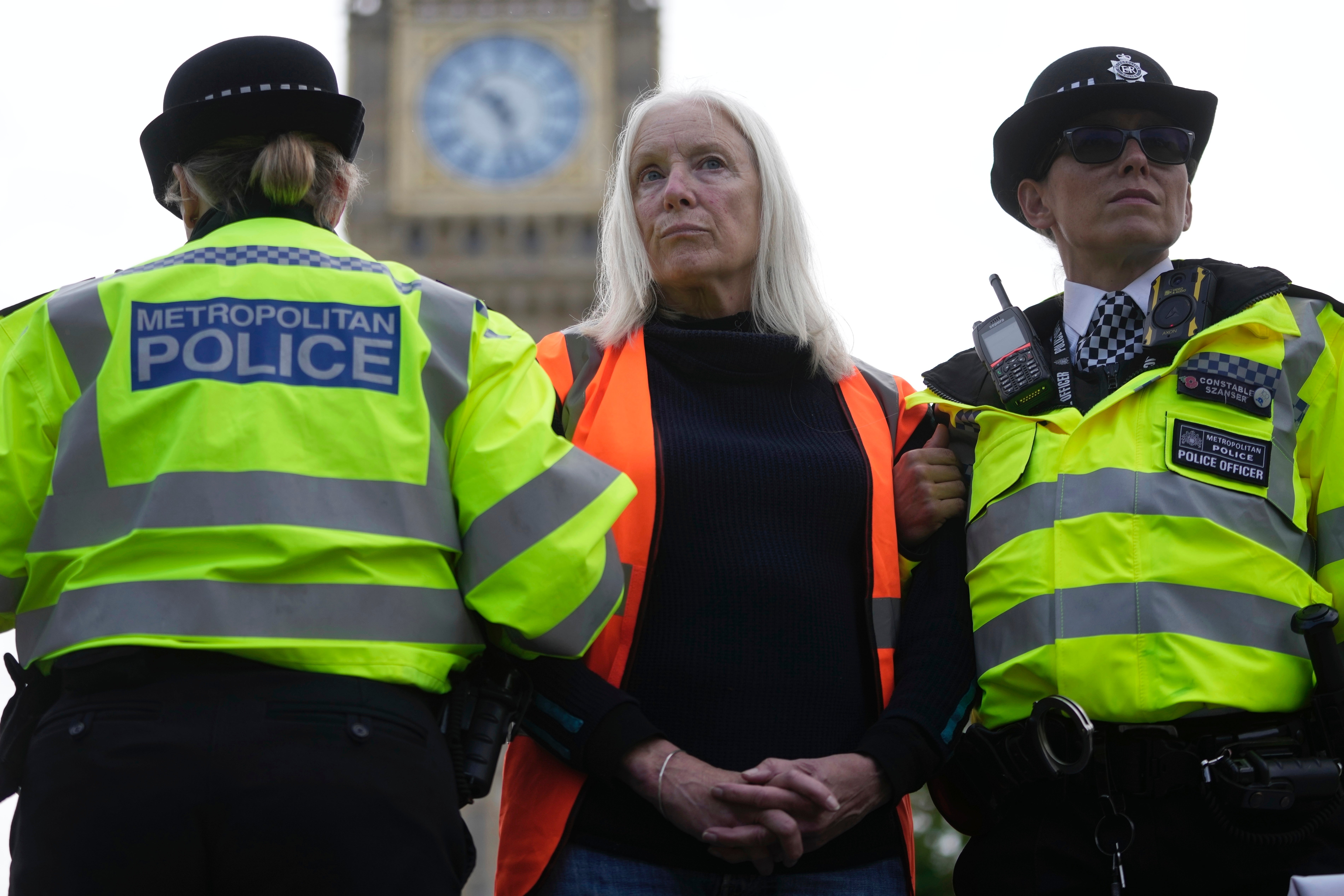UK court rules that extension of UK police powers to intervene in protests is unlawful
Britain’s High Court has ruled that new regulations that gave U.K. police more powers to intervene in protests were unlawful

Britain's High Court ruled Tuesday that new regulations that gave U.K. police more powers to intervene in protests are unlawful.
Civil liberties campaign group Liberty brought legal action against the British government over a law passed last year that lowered the threshold for what is considered “serious disruption” to community life caused by a protest.
The 2023 Public Order Act broadened the definition of “serious disruption” from “significant” and “prolonged” disturbance to individuals or an organization to “more than minor."
Authorities introduced the changes by a process called statutory instrument, which faces less scrutiny, after Parliament rejected them earlier. The measures targeted environmental activists who have staged disruptive protests in recent years on busy highways and roads in the U.K. and beyond to raise awareness about the urgency of climate change.
Suella Braverman, the home secretary at the time, told lawmakers last year that the measures would allow ordinary people to drive or get to work on time free from obstruction from a “selfish minority.”
Critics say the change was part of a worrying constriction of the right to protest in Britain.
Two judges ruled Tuesday that the Home Office acted outside of its powers and failed to carry out a fair consultation process.
Judges Nicholas Green and Timothy Kerr said “‘serious’ cannot, in the enabling legislation, mean ‘more than minor.’”
Akiko Hart, Liberty’s director, said the ruling was a “huge victory for democracy."
“These dangerous powers were rejected by Parliament yet still sneaked through the back door with the clear intention of stopping protesters that the government did not personally agree with," Hart said.
The government said it was disappointed with the ruling.
“We’ve said before that the right to protest is fundamental to democracy, but we simply will not tolerate intimidation or serious disruption of the law-abiding majority.," said Prime Minister Rishi Sunak’s spokesman, Dave Pares.
“We will consider all options to keep this important power for police, including appealing the judgment if necessary."
Bookmark popover
Removed from bookmarks